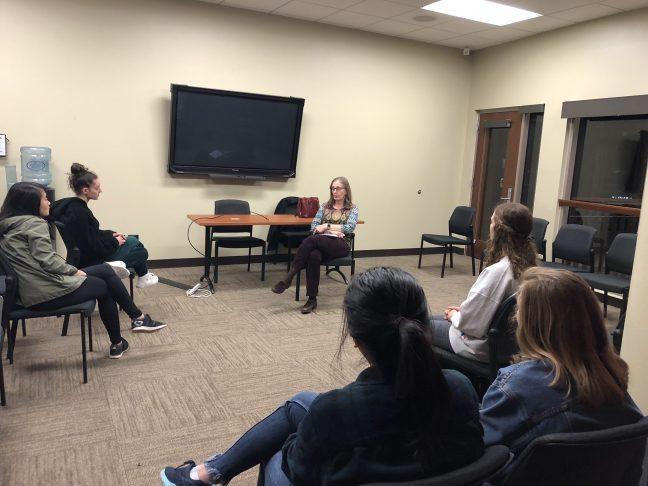Experts believe food insecurity can have lasting, adverse effects on a child’s development in later life. But Mary Lou Taylor, director of the Food for Thought Initiative, spoke Monday night about how the city can take steps to alleviate food insecurity and hunger, particularly among children in its public schools.
At the meeting, Taylor focused on current programs aimed at alleviating hunger among Madison students and their families. Food4TI was founded two and a half years ago by a group of retirees who wanted to combat hunger, so they began with Madison East High School in what was “a utility closet essentially,” Taylor said of the makeshift food pantry.
Food4TI also began a similar program at Sandburg Elementary School in 2016, while a newer initiative called Thea’s Table — named after Auschwitz survivor Thea Aschkenase, who is dedicated to fighting hunger — provides the district’s most in-need students with weekend and holiday family meals.
“[Aschkenase] remembered what it was like to be hungry and starving, so we named it after her,” Taylor said.
Food4TI works directly with teachers and social workers, who identify families in need. They do not ask any further questions about identification or financial status, which Taylor said she especially likes because it allows them to serve the undocumented population.
The group also supports backpack programs, which involves sending students home with a two and a half pound bag of food every week. Though the simple initiative is able to reach 100 or more kids at every school, Taylor still has slight concerns for its complexities.
“It’s really good, but I’ve always wondered what happens when you get that food home and you have two little brothers at home who don’t go to school yet and they’re just as hungry as you are,” Taylor said. “They’re seeing you drink your hot chocolate and eat your cereal … it just astounds me.”
Various food programs, though helpful, do not address the root cause of the hunger, Taylor said. Instead, Taylor believes hunger stems from a variety of political and socioeconomic problems, which Sydney Weiser, University of Wisconsin senior and WUD Cuisine director, referred to as the interconnectedness of social issues that must be solved to effectively prevent starvation.
“We’re just a bandaid,” Taylor said, referring to hunger as an overall societal issue. “[But] for an individual child, if you’re hungry we’re not a bandaid, we’re a safety net.”
Taylor stressed the importance of feeding school children — especially at the elementary level — because hungry students have more trouble focusing. This is problematic because statistics show those who have not learned to read proficiently by the end of third grade are more likely to be a high school or college dropout and lead a life of crime, Taylor said.
Food4TI is currently able to serve 40 families — about 200 people — every weekend, with most of them being homeless and living in motels or temporary housing, Taylor said. Despite this, she wishes the group could do more, since 1,100 students in the Madison school district are currently identified as homeless.
First United Methodist Church currently provides storage and packing space to Food4TI for free. Though the group would like to expand, this could prove financially difficult since it would require renting a larger area or finding a new benefactor.
“These are people who don’t have anything — they’ve given up a lot,” Taylor said. “We could be serving a lot more, but we don’t have the space and we don’t have the money.”
In terms of food preferences, Taylor said she does take into account which items families will or will not eat in part to ensure less food waste. This includes dietary restrictions, religious restrictions and general personal preferences.
Weiser believes this point is extremely important, because ignoring a person’s food request and opting to impose a strict menu can be disrespectful.
“Just because you may not be able to afford everything doesn’t mean you don’t have choices,” Weiser said. “That’s being like a regular person to be like ‘I like grape jelly and not strawberry jelly,’ that’s not an outrageous claim — it can be kind of dehumanizing … to be like this is what we have, this is what you get.”


